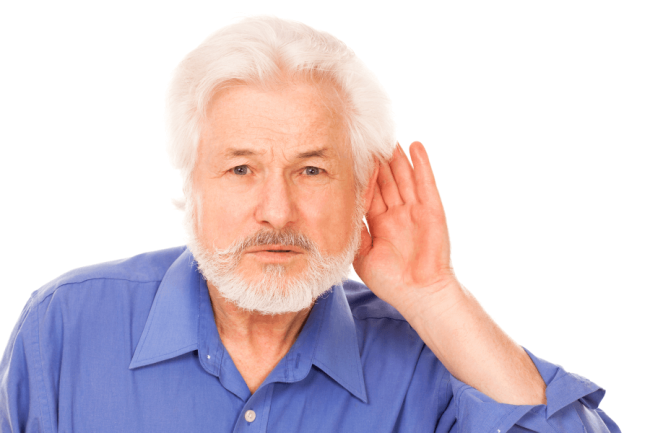Are you curious about unlocking the full potential of Ginkgo Biloba? This ancient tree extract, known for its impressive health benefits, has become a staple in natural health circles. But how do you take it for maximum effectiveness? Let’s explore the best practices, benefits, and precautions to help you make the most of this remarkable supplement.
Benefits of Ginkgo Biloba
Before knowing the best ways to take Biloba, let’s first understand why you might want to include it in your wellness routine.
Improvement in Mental Performance and Concentration
Ginkgo is renowned for its cognitive-enhancing properties. Studies suggest it can improve memory, sharpen concentration, and boost overall mental performance. This makes it a popular choice for students, professionals, and anyone looking to keep their brain in top shape.
Hearing Loss
Ginkgo is believed to improve blood flow, which may be beneficial in treating certain types of hearing loss.
Some studies suggest that it might help reduce symptoms of tinnitus (ringing in the ears) and sudden sensorineural hearing loss.
However, more research is needed to confirm its efficacy in these areas.
Anxiety
Ginkgo may help reduce symptoms of anxiety.
Its antioxidant properties and ability to enhance blood circulation to the brain are thought to play a role in alleviating anxiety.
Some studies have shown that people taking Ginkgo Biloba experienced less anxiety than those taking a placebo, although more extensive research is necessary.
Premenstrual Syndrome (PMS)
For women experiencing PMS, Ginkgo may offer some relief. It has been reported to help reduce the severity of PMS symptoms, including mood swings, headaches, and breast tenderness.
The exact mechanism is not fully understood, but it is believed to involve improved blood circulation and anti-inflammatory effects.
Schizophrenia
Ginkgo Biloba has been studied as a complementary treatment for schizophrenia, particularly for reducing the side effects of antipsychotic medications.
Some research suggests that it might improve cognitive function and reduce the symptoms of tardive dyskinesia, a movement disorder associated with long-term use of antipsychotic drugs.
Stroke
Ginkgo Biloba’s potential to improve blood flow and its neuroprotective properties make it a candidate for stroke prevention and recovery.
Some studies indicate that it might help reduce the severity of stroke and improve recovery outcomes by protecting nerve cells from damage.
However, its use should be monitored by a healthcare professional, especially because it can interact with blood-thinning medications.
Dementia
One of the most well-known uses of Ginkgo Biloba is in the treatment of dementia, including Alzheimer’s disease.
It is thought to improve cognitive function and slow down the progression of dementia symptoms.
While some studies show promising results, the overall evidence is mixed, and Ginkgo Biloba should not be considered a standalone treatment for dementia.
Increasing Libido
Some evidence suggests that Ginkgo Biloba may enhance sexual function and libido, particularly in individuals experiencing sexual dysfunction due to antidepressant use.
How to Take Ginkgo Biloba
Now that we know the benefits, let’s explore the most effective ways to take it.
Dosage Recommendations
The appropriate dosage of Ginkgo Biloba can vary depending on the individual and the specific condition being treated.
However, common dosages range from 120 to 240 mg per day, divided into two or three doses. It’s essential to start with a lower dose and gradually increase it to assess your body’s response.
Best Time to Take Ginkgo Biloba
The timing of your Ginkgo Biloba intake can influence its effectiveness:
- Morning: Taking Ginkgo Biloba in the morning can help boost alertness and cognitive function throughout the day.
- Evening: Some people find that taking it in the evening can help with relaxation and better sleep, though this is less common.
Forms Available
Ginkgo Biloba is available in several forms, each with its own advantages:
- Capsules/Tablets: Convenient and easy to dose, capsules and tablets are the most popular forms.
- Extracts: Liquid extracts can be added to water or juice, offering a customizable dosage.
- Tea: Ginkgo Biloba tea provides a more traditional way to consume the herb, though it may have a milder effect compared to capsules or extracts.
Possible Side Effects and Precautions
While Ginkgo Biloba is generally considered safe, it’s essential to be aware of potential side effects and precautions.
Common Side Effects
Some individuals may experience mild side effects, including:
- Headaches
- Dizziness
- Upset stomach
- Allergic skin reactions
Precautions for Specific Health Conditions
People with certain health conditions should exercise caution when taking Ginkgo Biloba:
- Bleeding Disorders: Ginkgo Biloba can increase the risk of bleeding, so individuals with bleeding disorders or those taking blood thinners should avoid it.
- Diabetes: Ginkgo Biloba might affect blood sugar levels, so diabetics should monitor their levels closely.
- Seizure Disorders: There is a potential risk that Ginkgo Biloba could lower the seizure threshold.
Interactions with Medications
Biloba can interact with various medications, including:
- Anticoagulants (e.g., warfarin)
- Antiplatelet drugs (e.g., aspirin)
- Antidepressants (e.g., SSRIs)
- Anti-seizure medications
Always consult a healthcare provider before starting Ginkgo , especially if you are on medication or have underlying health conditions.
Who Should Not Take Ginkgo Biloba
Certain individuals should avoid Ginkgo due to potential risks:
Specific Groups at Risk
- Pregnant and breastfeeding women: Insufficient evidence on safety.
- Children: Not typically recommended for those under 12 years old.
Conditions That Contraindicate Ginkgo Biloba
- Epilepsy: Increased risk of seizures.
- Bleeding disorders: Increased bleeding risk.
- Pre-surgery: Ginkgo Biloba should be discontinued at least two weeks before surgery to reduce bleeding risk.
Alternative Herbal Supplements
For those who should avoid Biloba, consider these alternatives:
- Bacopa Monnieri: Another cognitive enhancer with a more favorable safety profile for some individuals.
- Rhodiola Rosea: Known for its adaptogenic properties, it helps combat stress and fatigue.
- Ashwagandha: Promotes mental clarity and supports overall wellness.
Conclusion
Ginkgo Biloba is a versatile supplement with a range of health benefits, from boosting cognitive function to improving heart health.
To maximize its effectiveness, follow recommended dosages, choose the appropriate form, and be mindful of potential side effects and interactions.
Always consult with a healthcare provider to tailor Biloba use to your specific needs.
FAQs
What is the best form to take Biloba?
Capsules and tablets are the most convenient and commonly used forms, offering precise dosages. Extracts and teas are also popular, with extracts providing a more potent dose and teas offering a traditional, soothing experience.
Is it better to take Biloba at night or in the morning?
It depends on your goals. Taking Biloba in the morning can enhance cognitive function and alertness throughout the day, while some prefer taking it in the evening to promote relaxation.
Should Ginkgo Biloba be taken with food or on an empty stomach?
Ginkgo Biloba can be taken with or without food. However, taking it with food may help reduce the risk of gastrointestinal upset.
How long does it take Ginkgo Biloba to start working?
The effects of Ginkgo can vary. Some people may notice improvements within a few days, while others might require several weeks of consistent use to experience the full benefits. Patience and consistency are key to achieving the best results with Biloba.









